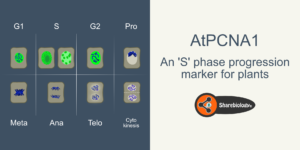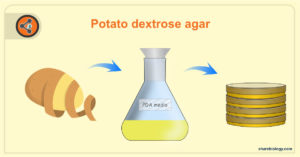Introduction
Glucosinolates are plant secondary metabolites. Myrosinase is an enzyme that catalyzes the breakdown of glucosinolates. Both of them are usually present in different cells in the tissue, unless there is damage. The breakdown products differ depending on the environmental conditions.
Applications
1. Total glucosinolates estimation from various plants. This protocol aims at the mustard de-oiled cake.
Advantages
- Less laborious than HPLC
- Simple extraction and estimation
- Relatively low cost
Limitations
- This method has different affinities for different types of glucosinolates. This might lead to a skewed estimation of total Glucosinolate content. For example, sodium tetrachloropalladate reacts to all types of glucosinolates but has a higher affinity to indolyl glucosinolates.
Reagents
2 mM sodium tetrachloropalladate:
58.8 mg Sodium tetrachloropalladate + 170 µl concentrated HCl +100 ml double distilled water.
Procedure
The protocol can be divided into extraction and estimation.
Extraction of total Glucosinolates
- Homogenise 0.1 g defatted seed meal in a 2 ml vial with 80% methanol.
- Keep overnight at room temperature.
- Spin it at 3000 rpm for 4 min
- Collect supernatant.
- Make the volume to 2 ml with 80% methanol.
Estimation of total Glucosinolates
- Take 100µL of the solution from the extraction step.
- Add 0.3 ml double distilled water
- 3 ml of 2 mM sodium tetrachloropalladate
- incubation at room temperature for 1 h
- The reaction mix turns brown. The intensity of the browning depends on the amount of glucosinolates.
- A blank was set following the same procedure without the extract.
- Find the O.D at 425nm use the O.D in the following formula to get the quantity of total Glucosinolates in µmol/g (Y).
- Y = 1.40 + 118.86 × A425
- Total glucosinolate content obtained by the predicted formula was comparable with the HPLC results.
Caution
- Using the right volumes is the key to the success of this protocol.
- The extract preparation is very crucial, and therefore utmost care is needed before quantification, such as avoiding excessive shaking and vortexing of the extract. A brief centrifuge would suffice for good results.


